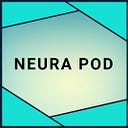Member-only story
Neuralink: Streaming Music to the Brain

I wanted to share thoughts about predictions I’ve heard related to Neuralink: these range from Neuralink giving us the ability to stream music directly to our brains to Neuralink developing a full cyborg robot-human.
The likelihood of the second prediction coming true depends on how you define a cyborg. If you’re thinking half-man, half-machine with robot arms or legs and therefore super-human strength, that seems pretty unlikely in my opinion. However, if you’re thinking Neuralink could enable us to have super-human brains, I think that’s pretty likely.
Neuralink is working on the tech that will support building super-human brains, but right now, that application is not their priority. Instead, the team wants to focus on curing a variety of brain disorders like Parkinson’s Disease, Alzheimer’s, dementia, and depression.
When it comes down to it, humans are effectively just our brains with a handful of useful limbs to carry out what our brains want us to do. Our entire lives are practically just our brains; I can back this up by a thought exercise: imagine you’re 100 years old and your physical body has deteriorated so significantly that you can’t move. That would be an unpleasant life, but it could still be pretty fulfilling as long as there are others around or tools to help you do what you want to do. However, if you’re brain has deteriorated, and your body is fully functional, life wouldn’t be very fulfilling. The takeaway is that if you’re brain dead, you’re pretty much fully dead, and since that’s the case, our lives are almost entirely just our brain’s lives.
I think the first prediction of Neuralink giving us the ability to stream music directly to our brains is a pretty feasible prediction because we can think of Neuralink essentially connecting our supercomputer phones to our brains and then that results in our brains having instantaneous access to the internet cloud at any given time. Right now, apps like Spotify, YouTube, and other apps can stream almost any music within a few seconds. In fact, as a side note, it was Spotify’s founder, Daniel Ek’s original ambition to provide a service that streamed music so quickly that it made customers feel as though they had the entire world’s library of music downloaded directly on their devices. In the US, illegal streaming of…
